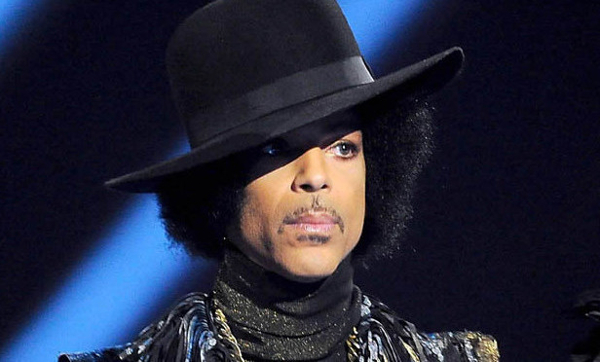
KANSAS CITY, KS — Just four days after Prince’s death, journalist Kevin Gosztola wrote an article called “The Protest Songs of Prince.” He began by summing up the grief in the social media. “A portrait has emerged of a humanitarian artist…who sought to find ways to uplift people who were struggling.” It then detailed various actions Prince took to champion women artists, support Black Lives Matter, fund green initiatives and get technology in the hands of the poor. The article ended with a head-spinning list of Prince’s political song lyrics—everything from 2009’s “Colonized Mind,” which equates the two-party system with fascism to 2016’s “Baltimore,” which memorialized Michael Brown and Freddie Gray, repeating the marchers’ refrain, “If there ain’t no justice, then there ain’t no peace.”
Such articles are important because they help to rescue Prince from corporate media that almost exclusively focused on him as an oddball. In 1993, when the artist changed his name into an unpronounceable symbol to escape a restrictive contract, few talked about music industry exploitation and artistic freedom. “The Artist Formerly Known As” was treated like a joke.
But to Prince’s fans—as widespread and diverse an audience as any in the last four decades—his moves weren’t jokes. In 1981, when Prince first played Saturday Night Live with his band the Revolution, he kicked off the performance by shouting, “Down with war!” The band launched into its anthem “Party Up!,” a lean, hard rocking blend of the new energy at the moment, as punk as it was funk. At the end of the song, he and the band repeated the chant, “You’re gonna have to fight your own damn war ‘cause we don’t want to fight no more,” his mic drop and exit from the stage a bold exclamation mark.
His career bolstered the careers of many others, from Mavis Staples to Janelle Monae. According to the AFL-CIO, he paid union dues for forty years to both Minneapolis’s American Federation of Musicians local and the local Screen Actors’ Guild. He taught young musicians how to fight.
In a recent radio interview, Toronto rapper k-os recalled how Prince pushed him to understand his business dealings. Ultimately, the star wanted the up and coming musician to think of the bigger picture. “You can’t depend on a record label in these days and times. It’s gonna change, man. He’s like ‘It’s right around the corner. Everything’s going to change.’”
Despite the tragedy surrounding Prince’s death, he should be remembered as an artist who reached out to others and fought the system. He dreamed of an “Uptown” world where all races would be free and united; he called for a new breed of leaders to “Stand up, organize!” He rejected old ideas that lead to war and embraced a new world of love and music. When he presented the Grammy for best album last year, he famously stated “Like books and Black lives, albums still matter.” In the middle of a party, he never stopped pushing us to think.
Danny Alexander is a Kansas City area teacher and journalist who writes about music and politics. In March, his new book, “Real Love, No Drama: The Music of Mary J. Blige,” was published.
The revolutionary Prince
Latest
Free to republish but please credit the People's Tribune. Visit us at www.peoplestribune.org, email peoplestribune@gmail.com
The People’s Tribune brings you articles written by individuals or organizations, along with our own reporting. Bylined articles reflect the views of the authors. Unsigned articles reflect the views of the editorial board. Please credit the source when sharing: ©2024 peoplestribune.org. Please donate to help us keep bringing you voices of the movement. Click here. We’re all volunteer, no paid staff.
